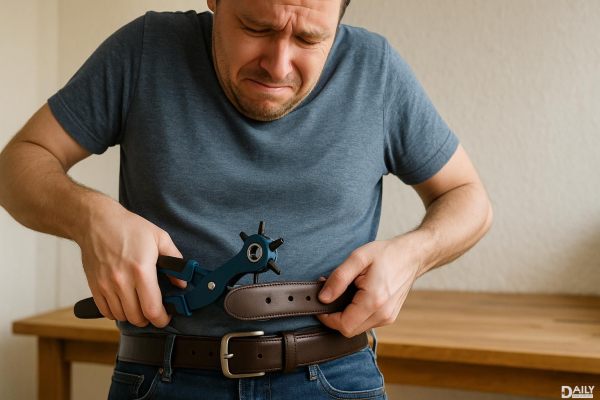Money dysmorphia is that gnawing feeling that no matter how much cash you stack, it never feels like enough. You could be making six figures, have zero debt, and still wake up in a cold sweat convinced you’re one missed paycheck away from living in a cardboard box. Sound familiar? You’re not alone—this financial version of body dysmorphia has become a low-key epidemic, warping our perception of wealth and security even when logic says we’re doing just fine.
The Psychology Behind the Panic
Our brains weren’t built for modern money stress. Back in caveman times, survival meant hoarding resources for winter—a scarcity mindset hardwired into our DNA. Fast-forward to today, where social media bombards us with filtered versions of wealth (private jets! designer closets!), and suddenly your decent salary feels like pocket change. Psychologists call this "relative deprivation"—the gap between what we have and what we think we should have based on comparison. Throw in student loans, rising rent, and the looming specter of recessions, and boom: your rational brain gets hijacked by primal fear.
How Lifestyle Creep Fuels the Fire
Ever notice how a pay raise mysteriously vanishes? That’s lifestyle creep—the sneaky upgrade cycle where more income just means fancier problems. The $5 latte replaces the diner coffee, the used Toyota becomes a leased BMW, and suddenly you’re spending 80% of your paycheck on "essentials" that used to be luxuries. The irony? Research shows happiness plateaus around $75k/year (adjusted for inflation), yet we keep chasing higher numbers thinking they’ll fix the emptiness. Spoiler: they don’t.
The Social Media Mirage
Instagram finance gurus love flexing their "hustle" with rented Lambos and #blessed captions, but here’s the truth: most of it’s smoke and mirrors. Behind the Rolex wrist shots are maxed-out credit cards and performance anxiety. One study found 60% of millennials compare their finances to peers online—and unsurprisingly, feel worse afterward. Algorithms thrive on envy, serving you endless content of people "winning" while your bank account looks mediocre in comparison. It’s like judging your cooking skills against a Michelin chef’s TikTok.
Breaking the Dysmorphia Cycle
First step: audit your reality. Track your spending for 30 days (no judgment) and you’ll likely find "I’m broke" actually means "I overspend on Uber Eats." Apps like YNAB or Mint expose the gap between perception and actual cash flow. Next, unfollow toxic accounts selling get-rich-quick fantasies—follow educators like Ramit Sethi who preach conscious spending instead. Finally, automate savings before your brain can sabotage them. Even $50/week into a high-yield account builds real security faster than another pair of designer sneakers.
Money dysmorphia thrives in silence, so talk about it. You’ll discover your "rich" friend is drowning in debt, and your "broke" buddy has a secret emergency fund. Real wealth isn’t a number—it’s the peace of mind that comes when you stop measuring your life against everyone else’s highlight reel.
























